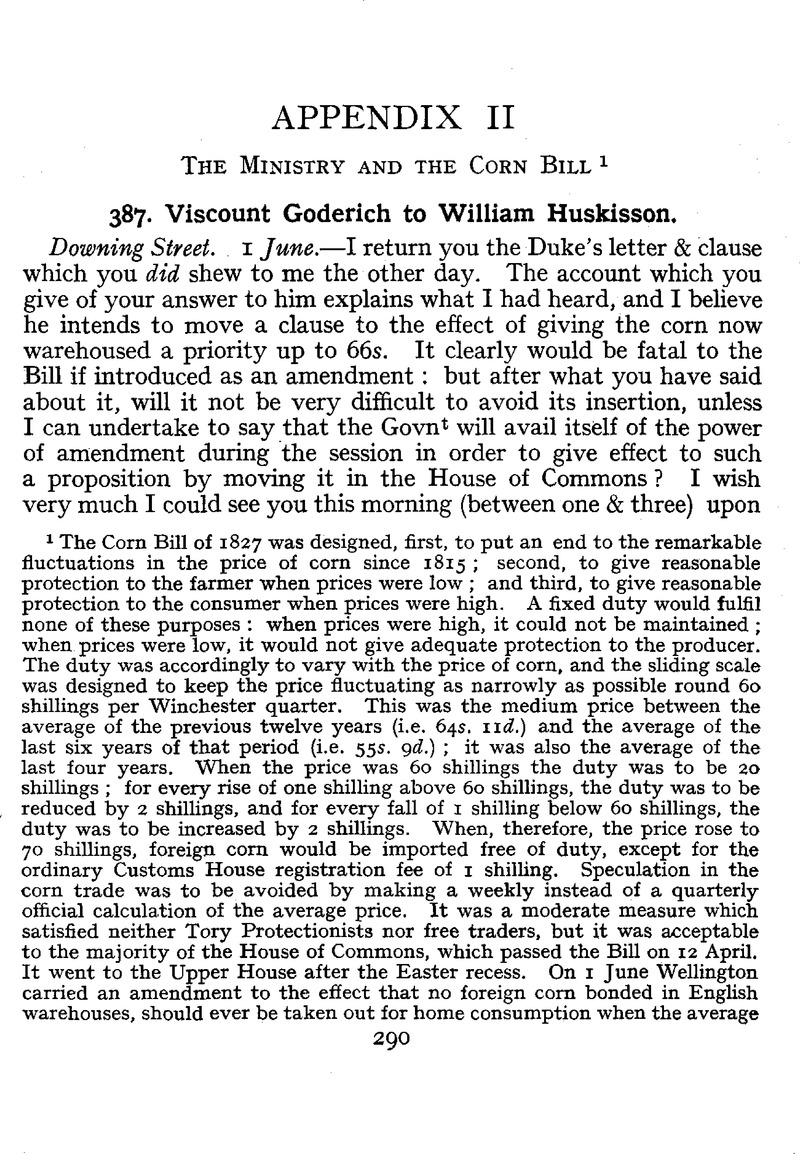No CrossRef data available.
Article contents
Abstract

- Type
- Appendix II
- Information
- Copyright
- Copyright © Royal Historical Society 1937
References
page 294 note 1 In a letter to the Duke dated 31 May, Lord Colchester, a former Speaker of the House of Commons, pointed out that as the Corn Bill was “A Bill to grant certain duties or customs on Corn,” the House of Lords had no power to amend it, the exclusive claim of the Commons to regulate all matters of supply having uniformly been asserted since their famous Resolution of 3 July 1678 (Colchester Diary, iii. 513).Google Scholar
page 295 note 1 Lord Seaford was a West Indian proprietor.
page 296 note 1 Binning had married Macclesfield's daughter.
page 298 note 1 Frances, daughter of the fourth Earl and first Marquess of Bute, married Lord Harrowby's eldest son. Viscount Sandon.


